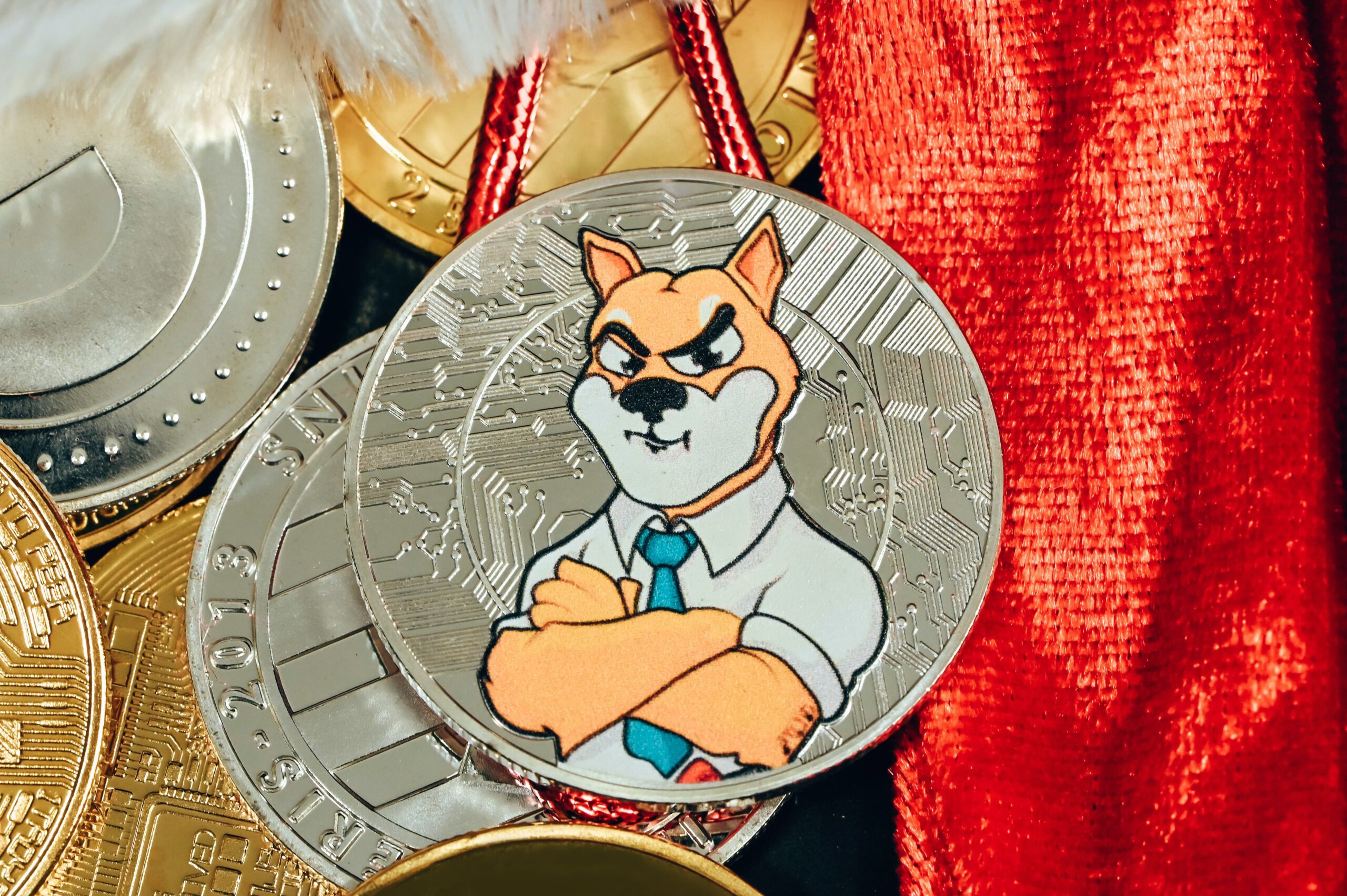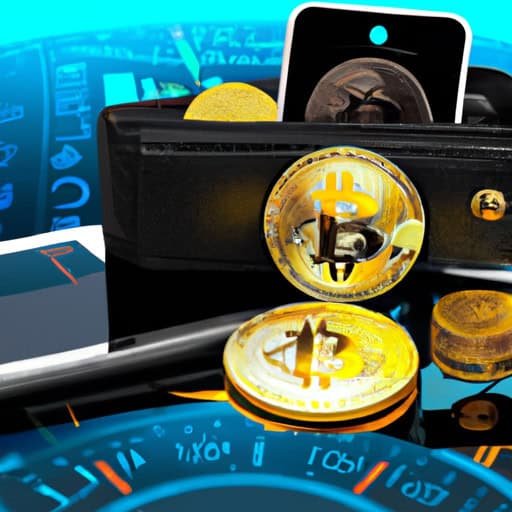In an increasingly digital world, the security of our cryptocurrency investments is of utmost importance. With the rising popularity of cryptocurrencies, hackers and scammers are continually finding new ways to target unsuspecting investors. So, how can you ensure the safety and protection of your valuable digital assets? In this article, we will explore some essential tips and strategies to keep your cryptocurrency investments safe from theft, so you can trade and invest with peace of mind.

Choose a Secure Wallet
When it comes to keeping your cryptocurrency investments safe from theft, one of the most important steps is choosing a secure wallet. A wallet is a digital storage space for your cryptocurrency, and there are several options available to choose from. Here are some key considerations:
Use a Hardware Wallet
A hardware wallet is a physical device that stores your cryptocurrency offline. It is considered one of the safest options as it keeps your private keys, which are crucial for accessing your funds, offline, and away from potential hackers. Hardware wallets are immune to computer viruses and malware since they are not connected to the internet. They often come with built-in security features such as PIN codes and two-factor authentication (2FA) to provide an additional layer of protection.
Select a Trustworthy Software Wallet
Software wallets are applications that you install on your computer or smartphone to manage your cryptocurrency. When selecting a software wallet, it is essential to choose one from a trustworthy source. Look for wallets that have a solid reputation, positive user reviews, and have been audited for security vulnerabilities. Additionally, make sure the software wallet you choose supports the cryptocurrencies you plan to store.
Consider a Paper Wallet
If you prefer a more traditional approach, a paper wallet can be a secure option for storing your cryptocurrency. A paper wallet involves printing out your private keys and public addresses on a physical piece of paper. By keeping your keys offline, you greatly reduce the risk of them being accessed by hackers. However, it is crucial to store your paper wallet in a safe and secure location to prevent physical theft or damage.
Regularly Update your Software
Once you have chosen a secure wallet, it is imperative to regularly update your software to protect your cryptocurrency investments. Updates often include important security patches and bug fixes that address vulnerabilities or weaknesses in the wallet software. Here are some key areas to focus on:
Keep Operating Systems Up to Date
Ensure that your computer or smartphone’s operating system is always up to date with the latest security updates. Operating system updates often include critical security fixes that can prevent hackers from exploiting vulnerabilities in your device’s software.
Update Wallet Software and Firmware
In addition to keeping your operating system up to date, regularly check for software updates for your chosen wallet. Wallet software updates often include new security features, enhancements, and bug fixes. Similarly, if you are using a hardware wallet, check for firmware updates provided by the manufacturer. These updates can address potential security weaknesses and improve the overall security of your device.
Apply Security Patches
When software updates or patches are released for your chosen wallet or operating system, make sure to apply them promptly. Security patches are designed to fix known vulnerabilities and protect your cryptocurrency investments. Ignoring or delaying the installation of security patches leaves your wallet susceptible to potential attacks.
Set Strong Passwords
Using strong and unique passwords is crucial for securing your cryptocurrency investments. A strong password is one that is difficult for others to guess or crack. Here are some tips for setting a strong password:
Use a Combination of Characters
When creating a password, combine uppercase and lowercase letters, numbers, and special characters. The more varied and complex your password is, the harder it will be for hackers to crack. Avoid using easily guessable patterns like sequential numbers or common phrases.
Avoid Common Passwords
Stay away from using common passwords such as “password,” “123456,” or your birthdate. Hackers often use a technique called brute-forcing, where they systematically try all possible passwords until they find the correct one. Using common passwords makes it easier for them to guess the right combination.
Enable Two-Factor Authentication
Two-factor authentication (2FA) adds an extra layer of security to your wallet by requiring a second form of verification, usually a unique code or fingerprint, in addition to your password. With 2FA enabled, even if someone manages to obtain your password, they will still need the second factor to gain access to your funds. Enable 2FA whenever possible, as it significantly reduces the risk of unauthorized access.
Beware of Phishing Attempts
Phishing attempts are a common method used by hackers to trick individuals into revealing their sensitive information, such as passwords or private keys. Here’s how you can protect yourself:
Double Check URLs
Always double-check the URLs of the websites you visit, especially when accessing your cryptocurrency wallet. Phishing scammers often create websites that look identical to legitimate ones, aiming to trick users into entering their login credentials. Check for slight variations or misspellings in the URL and ensure it matches the official website.
Be Cautious of Emails and Messages
Be cautious of unsolicited emails or messages that ask for your login credentials, private keys, or other sensitive information. Legitimate organizations, including cryptocurrency wallet providers, will never ask for this information via email or messaging apps. If you receive a suspicious email or message, do not click on any links or provide any personal information.
Avoid Clicking on Suspicious Links
Avoid clicking on links from unknown or suspicious sources, as they could lead to phishing websites. Hackers often disguise malicious links within emails, messages, or advertisements. If you are unsure about the legitimacy of a link, manually enter the website’s URL into your browser or use a search engine to find the official website.

Use Cold Storage for Long-Term Storage
For long-term storage of your cryptocurrency investments, consider utilizing cold storage methods. Cold storage involves keeping your funds offline, away from internet-connected devices, and minimizing the risk of hacking or unauthorized access. Here are some cold storage options to consider:
Transfer Coins to an Offline Wallet
Moving your coins to an offline wallet, such as a hardware or paper wallet, is one of the most secure ways to store your cryptocurrency for the long term. Once your funds are safely stored offline, they are no longer vulnerable to online threats.
Keep Backups in Multiple Locations
It is important to have multiple backups of your offline wallet to safeguard against loss or damage. Store these backups in secure physical locations, such as safety deposit boxes or fireproof safes. Consider making digital backups as well, encrypting them and storing them in secure cloud storage services.
Consider Hardware Wallets for Cold Storage
Hardware wallets, such as the previously mentioned offline wallets, are an excellent option for cold storage. These devices are designed specifically for securely storing cryptocurrency and provide an extra layer of protection against unauthorized access. Hardware wallets are often capable of storing multiple types of cryptocurrencies, making them a versatile choice for long-term cold storage.
Secure your Digital Identity
Protecting your digital identity is crucial when it comes to securing your cryptocurrency investments. Your private keys and personal information need to be stored securely. Here are some steps you can take:
Protect your Private Keys
Ensure that your private keys are stored in a safe and secure location. Avoid storing them on internet-connected devices or cloud storage services, as they can be vulnerable to hacking. Physical options, such as paper wallets or hardware wallets, are often the safest way to secure your private keys.
Use Encrypted Cloud Storage
If you choose to store any sensitive information digitally, such as encrypted backups of your wallet, opt for reputable cloud storage services that offer strong encryption and advanced security features. Enable two-factor authentication for your cloud storage account to add an extra layer of protection.
Be Careful with Online Exchanges
When using online cryptocurrency exchanges, be cautious with the personal information you provide and the platforms you choose. Only use reputable and well-established exchanges that have a proven track record of security and customer protection. Additionally, avoid sharing more personal information than necessary and regularly monitor your accounts for any unusual activity.

Educate Yourself on Security Best Practices
Staying informed about the latest security best practices is essential for keeping your cryptocurrency investments safe. Here are some ways to educate yourself:
Stay Updated with the Latest Security News
Regularly follow reputable sources of information on cryptocurrency security to stay informed about the latest threats and vulnerabilities. Subscribe to security-focused newsletters, follow industry experts on social media, and participate in online forums and communities dedicated to cryptocurrency security.
Understand Digital Signature Technology
Digital signatures are cryptographic codes that verify the authenticity and integrity of data. Understanding how digital signature technology works and how it applies to cryptocurrency transactions can help you better protect your investments. Familiarize yourself with the concept of digital signatures and how they are used to secure transactions.
Follow Cryptocurrency Communities for Tips
Join online cryptocurrency communities and forums to engage with experienced users and gain insights into security best practices. These communities often share valuable tips, recommendations, and warnings regarding security vulnerabilities and emerging threats. Active participation in these communities can enhance your knowledge and help you make more informed decisions.
Create Unique Addresses
Using unique addresses for each cryptocurrency transaction adds an extra layer of security to your investments. Here’s why it is important:
Use New Addresses for Each Transaction
When making cryptocurrency transactions, generate a new address for each transaction. Reusing addresses can potentially expose your financial history and make you more vulnerable to tracking or hacking attempts. Generating new addresses for transactions helps maintain your privacy and security.
Consider Privacy-Centric Cryptocurrencies
Some cryptocurrencies prioritize privacy and offer additional security features. Consider utilizing privacy-centric cryptocurrencies for transactions that require a higher level of confidentiality. These cryptocurrencies employ advanced encryption techniques and innovative protocols to enhance privacy and protect users’ identities.
Implement Address Labeling and Organization
Keep track of your addresses and transactions by implementing labeling and organization techniques. Assign meaningful labels to your addresses or use a comprehensive record-keeping system to ensure accurate tracking and monitoring. This practice can help you easily identify transactions, detect any suspicious activity, and maintain control over your cryptocurrency investments.
Implement Multi-Signature Wallets
Multi-signature wallets are another security measure you can implement to protect your cryptocurrency investments. Here’s how they work:
Require Multiple Approvals for Transactions
Multi-signature wallets require multiple private key signatures to authorize a transaction. For example, setting up a 2-of-3 multi-signature wallet means that at least two out of three designated private keys must approve a transaction before it is executed. This extra layer of security ensures that even if one private key is compromised, the funds remain secure.
Utilize Multi-Signature Wallet Providers
Many wallet providers offer multi-signature wallet options. Research reputable providers and choose one that aligns with your needs. Look for providers that prioritize security, have a strong track record, and implement best practices in protecting your funds.
Add an Additional Layer of Security
Consider integrating multi-signature wallets with other security measures, such as two-factor authentication or hardware wallets, for added protection. By combining different security features, you increase the overall security of your cryptocurrency investments, making it more challenging for potential attackers to gain unauthorized access.
Backup and Encrypt Your Wallet
Regularly backing up your wallet and encrypting it are vital steps in securing your cryptocurrency investments. Here are some key points to consider:
Make Regular Backups of Your Wallet
Back up your wallet regularly to ensure you can restore your funds in the event of loss or theft. Set a schedule for creating backups, and store them in a safe and secure location. Consider using multiple backup methods, such as physical storage devices and encrypted cloud storage, to maximize redundancy.
Store Backups Offline or in Secure Cloud Storage
Keep your backups offline or store them in secure cloud storage services with strong encryption. Offline storage ensures that your backups are not vulnerable to online attacks or unauthorized access. If using cloud storage, make sure to enable two-factor authentication and choose a reputable and secure provider.
Encrypt Wallet for Added Security
Most wallet applications offer encryption features to protect your wallet file with a password. Encrypting your wallet adds an extra layer of security, as it prevents unauthorized access to your funds even if the wallet file is somehow obtained by an attacker. Set a strong password for wallet encryption and ensure it is unique and separate from other passwords you use.
By following these comprehensive security guidelines, you can significantly enhance the safety of your cryptocurrency investments. Remember to stay proactive, educate yourself on emerging threats and best practices, and regularly review and update your security measures. Keeping your cryptocurrency secure not only protects your own financial well-being but also contributes to the overall stability and trustworthiness of the cryptocurrency ecosystem.

